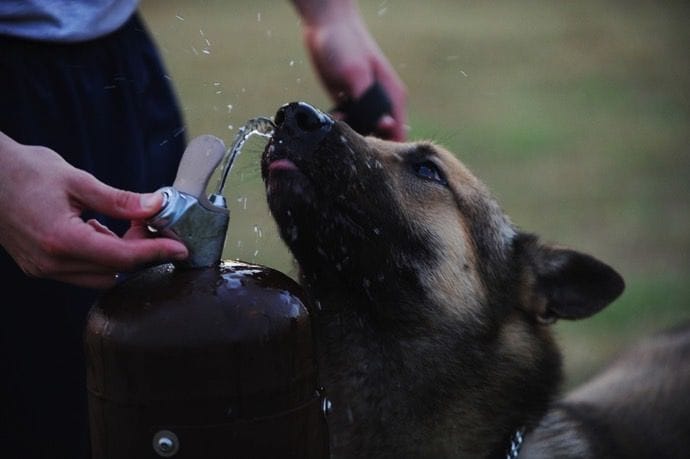This is a great article!
How to Add Years to Your Pet's Life
By Lorie Huston, DVM
Anyone who has ever had a dog or cat wishes just one thing — that he or she has a healthy and long life. Here are five tips that can help your pet do just that.
1. FEED A HIGH QUALITY DIET.
Pets fed a high quality diet have a shiny hair coat, healthy skin, and bright eyes. A good diet can help strengthen your pet’s immune system, help maintain his or her intestinal health, help increase his or her mental acuity, help keep joints and muscles healthy, and much more.
2. KEEP YOUR PET LEAN.
Pets that are overweight are at risk for a myriad of health issues. Obesity is the number one nutritional disease seen in pets currently and studies have shown that being overweight or obese can shorten a dog or cat’s life span by as much as two years. Why? Being overweight or obese puts your pet at risk for joint disease, heart disease and diabetes, among other things.
3. TAKE YOUR PET TO THE VETERINARIAN REGULARLY.
All pets, including both dogs and cats, require regular veterinary care. However, veterinary care goes far beyond routine vaccinations, even though those are important. A routine examination by your veterinarian can uncover health issues of which you are unaware. In many cases, an early diagnosis improves the chances of successful treatment. Early diagnosis is also likely to be less costly for you than waiting until your pet’s illness has become advanced and serious before attempting treatment.
4. KEEP YOUR PET’S MOUTH CLEAN.
A common problem among dogs and cats, dental disease and oral health issues can cause your pet pain, making it difficult for him or her to eat. If left untreated, oral health issues may even lead to heart and kidney disease. In addition to regular dental checkups, the most effective means of caring for your pet’s mouth at home is to brush his or her teeth at home. If your pet isn’t a big fan of toothbrushes there are other alternatives as well, including dental diets, treats, and toys. Ask your veterinarian for some recommendations.
5. DO NOT ALLOW YOUR PET TO ROAM UNSUPERVISED.
Allowing your dog or cat to roam free may seem like you’re doing your pet a favor. However, pets that roam are susceptible to a number of dangers, including automobile accidents, predation, exposure to contagious diseases, exposure to poisons, and more. Additionally, allowing your pet to roam unsupervised may alienate your neighbors should your pet ever "relieve" him- or herself in their lawn or dig up their garden.






